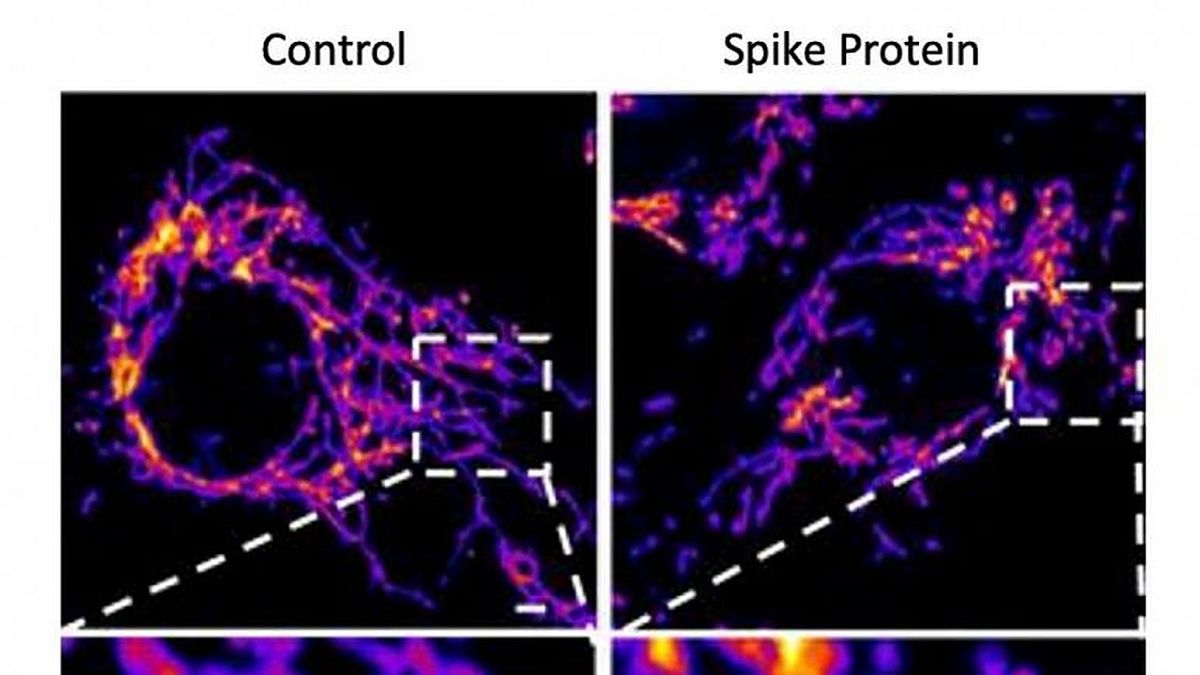This could explain blood clots in some COVID patients and other issues like "COVID feet", which are not classic symptoms of a respiratory illness.
A study at the University of San Diego claims to have proof that COVID-19 is not a respiratory illness, but a vascular one.
This could explain blood clots in some COVID patients and other issues like "COVID feet", which are not classic symptoms of a respiratory illness.
The study, published in the journal Circulation Research, shows with precision how virus damages the cells of the vascular system.
It was already known that besides the various symptoms of COVID-19 that coincide with respiratory problems, there are other cardiovascular issues that affect other parts of the body.
What’s new is the team conducting the study, which included scientists from the SALK Institute, showed the form in which the virus attacks the vascular or circulatory system.
The S protein of the virus, the spike that forms the crown, attacks the receptor ACE2, damaging the mitocondrias that generate the energy of the cells, thus damaging the endothelium, which lines the blood vessel.
This is something that has already been observed, but what wasn’t previously known is the exact mechanism and role of the S protein.
This protein is replicated by all of the currently available vaccines.
The scientists created a pseudovirus for the study, which only had the S protein but not the rest of the virus, to show in the lab that this protein is enough by itself to cause disease.
The effects on the respiratory system are a consequence of the inflammation of the vascular tissue in the lungs.
“A lot of people think of it as a respiratory disease, but it’s really a vascular disease,” says assistant research professor Uri Manor, who is co-senior author of the study.
“That could explain why some people have strokes, and why some people have issues in other parts of the body. The commonality between them is that they all have vascular underpinnings.”
Only an effect in serious cases?
Professor Rafael Máñez Mendiluce, who has been treating COVID-19 patients for a year as head of intensive care at Bellvitge University Hospital, says this is no surprise, given the clinical pictures presented by those who come to his department.
A year ago, he explained to us that the greatest risk of COVID-19 was the inflammatory symptoms presented by the patients. He also reminded us that blood clots are phenomena that occur in other viruses.
Máñez Mendiluce also wonders whether vascular problems do not occur only in the most severe patients, once the infection has already "conquered" the respiratory tract, spreading through the blood.
"Generally in mild patients, the infection is limited to the upper airways only,” he says.
He also believes the vascular problem could be related to the inflammatory response of the patient's immune system.
For Máñez Mendiluce, who has 30 years of experience in intensive care, this discovery does not drastically change the treatment possibilities for the most severe cases. He recalls that antithrombotic drug treatments have not proven to be particularly effective and that for the time being it is recommended to focus on the inflammation caused by the immune response.
This is a long-standing problem in intensive care. "We still don't have any treatment for thrombosis caused by the inflammatory response generated by the infection," he explains.
The discussion in the scientific community is still open, he adds. These problems are recurrent in intensive care units.
Máñez Mendiluce thinks this study does not call into question existing vaccines, although it should be better understood why the AstraZeneca and Johnson & Johnson vaccines have caused some rare cases of blood clotting.
The discovery has caused a stir. Some wonder whether it is dangerous for vaccines to inoculate precisely replicas of the S protein that appears to be capable of causing the disease.
Professor Uri Manor said on his Twitter account that, contrary to anti-vaccine claims, the study only shows that COVID-19 is a very insidious disease.
He explains that the amount of S protein in the vaccines is too small to be problematic.
He also says that the messenger RNA vaccine is much safer than getting the disease. "Everyone should get it, I did and everyone in my family did! Our paper just shows that this disease really sucks.
The Salk Institute researchers now hope to better understand the mechanism by which ACE2 receptors damaged by the S protein cause deformations and damage to mitochondria, which then cause problems in vascular tissue.


